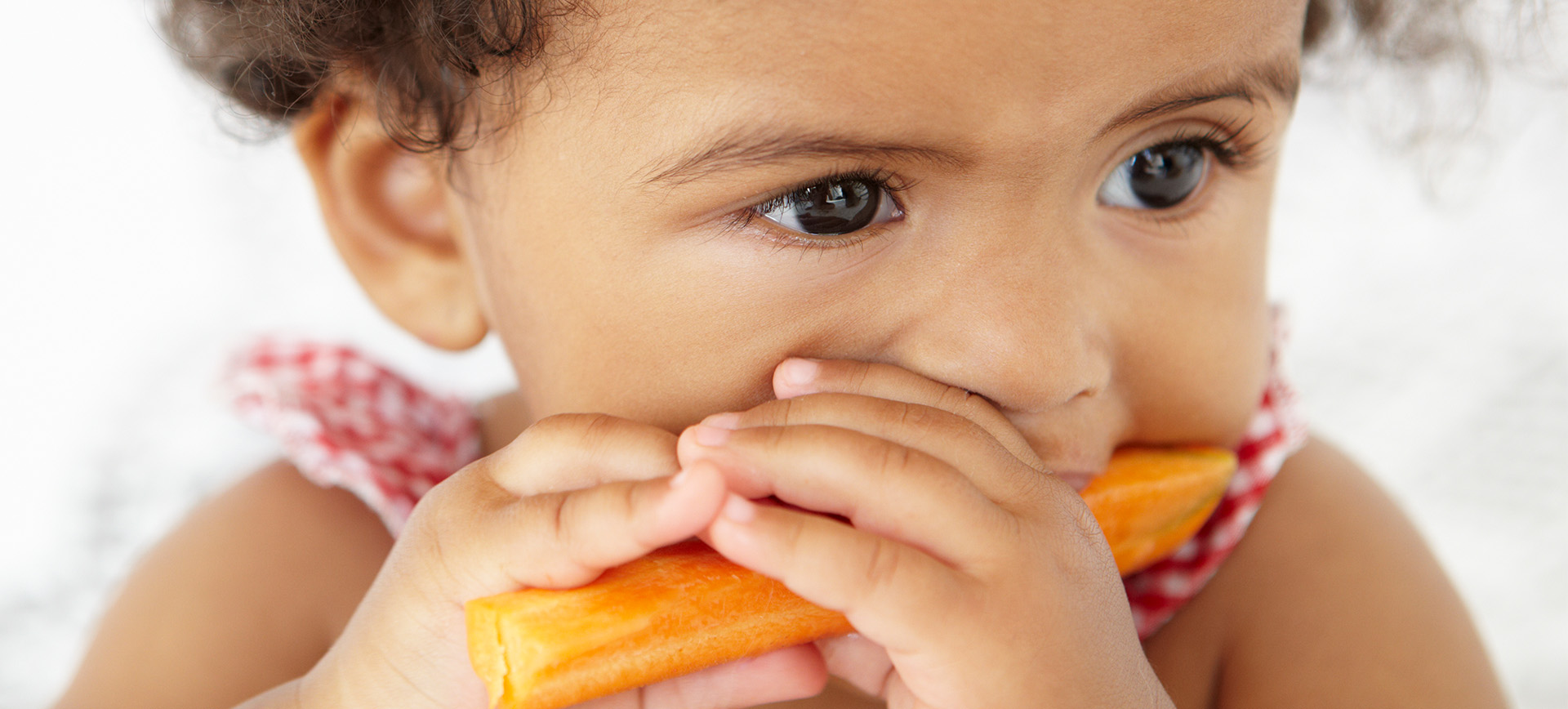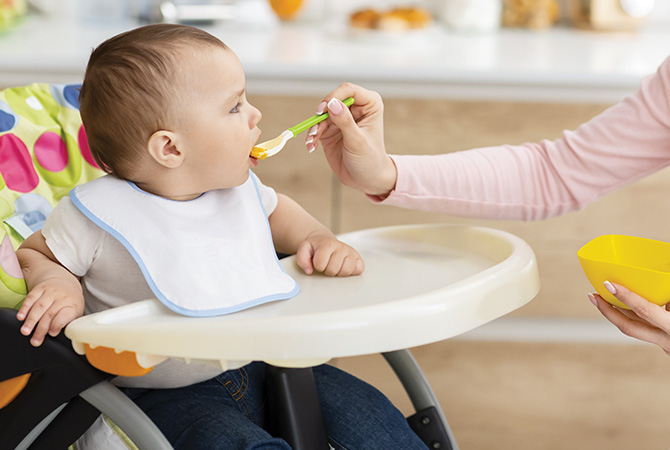
How to Raise a Child Who Likes Healthy Food
- Home
- Live Well Blog
- How to Raise a Child Who Likes Healthy Food
October 26, 2022
Children
Did you know your baby prefers certain flavors even before they are born? And the flavors they like during their first year may tell you what they will want to eat as they grow up? It’s true! While some of your baby’s flavor preferences are present at birth, you still have a lot of influence in helping them like other healthy foods, especially in their first year of life.
Babies are born with a natural tendency to like sweet, salty, and savory foods, and dislike bitter foods. Newborn research tells us that babies are “hard-wired” to like tastes that signal a benefit for them, like sweet flavors, which signal calories. Your baby has their own flavor preferences, which partly come from their genetic background. Some kids tend to be more sensitive to the bitter taste of foods, like vegetables, and may prefer sweets and sweet beverages because of this sensitivity.

During Pregnancy

Whether your baby likes a flavor or not depends on two senses: taste and smell. Both of these senses begin to develop early in your pregnancy and are fully mature at birth. In the womb, your baby tastes different flavors based on what you eat. After birth, your human milk also carries the flavors of your diet. From these two liquids, babies are exposed to different flavors very early. Babies who drink infant formula receive the same flavors every day until they begin eating solid food; the flavor of infant formula doesn’t change.
Infancy
When your baby starts solid foods, they will begin tasting and learning to like many new flavors. You can help by offering different flavors every day, especially as they grow from baby to toddler. This is what
researchers call food exposure. In fact, scientists believe that babies and toddlers need to try a food up to 6 to 15 times to like it enough to eat more of it. Just seeing, smelling, or touching food is not enough—your baby needs to taste the food for exposure to work.


Make sure to offer new flavors in a relaxed and positive way at mealtime. Stay away from giving your baby a reward, such as a sweet treat, when they try a new food. Also, don’t pressure them to eat more than they want. These tactics may make them eat more than they are hungry for, turn off their hunger, or lead them to dislike the food.
What you eat at home will most likely be the foods your child will end up eating. So, buy, serve, and eat healthy foods, offering plenty of different fruits and vegetables and whole grains. Keep your baby away from sweets as long as possible. Exposure to sweets may steer them to prefer these foods, which may turn into a problem in the preschool years.

Early childhood is a time of building taste buds that like a wide range of foods. While your baby has tasted many flavors since you were pregnant, and after they were born, now is the time you can help them get on the right track with healthy flavor preferences by offering a lot of different foods to try.
